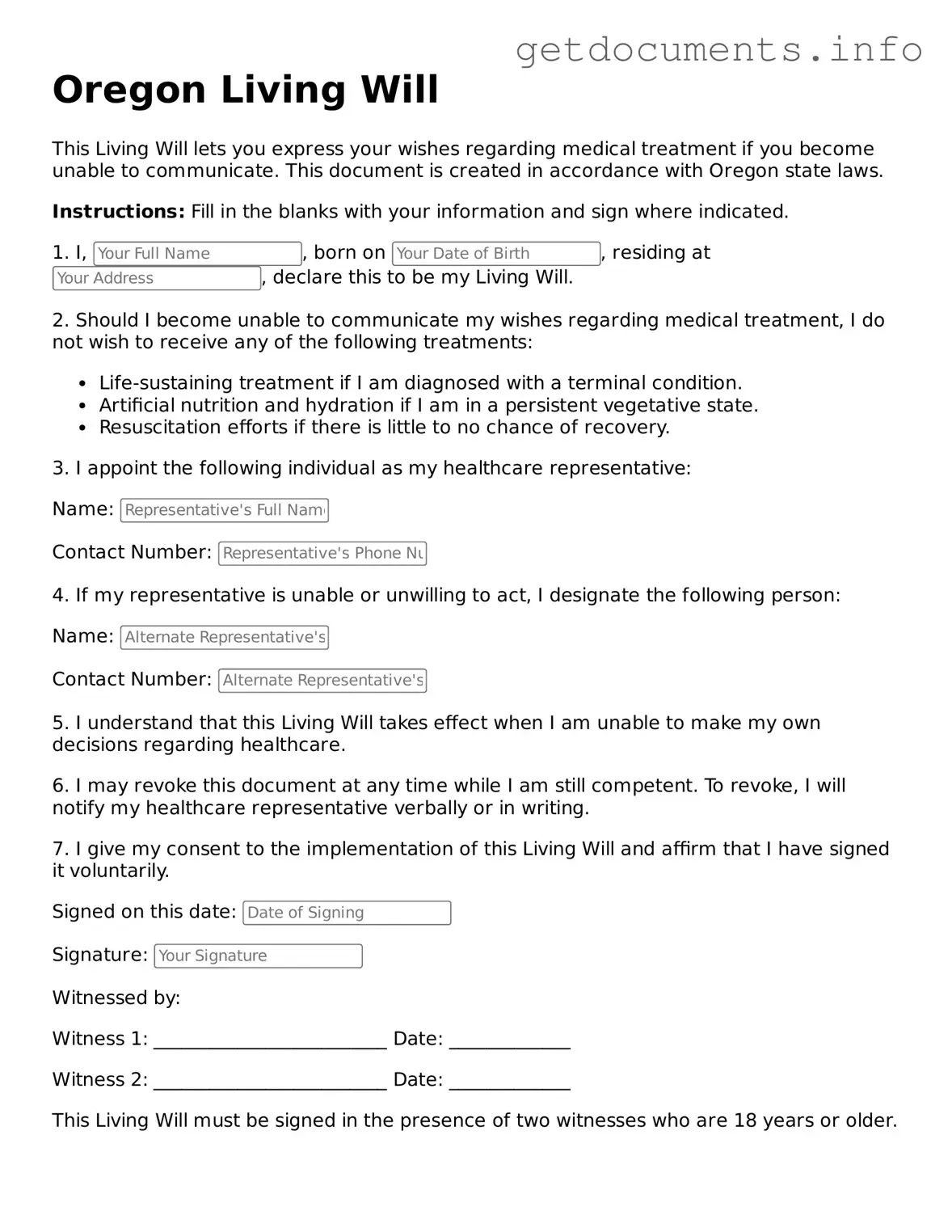Free Living Will Template for Oregon
A Living Will is a legal document that allows individuals in Oregon to outline their preferences for medical treatment in the event they become unable to communicate their wishes. This form provides guidance to healthcare providers and loved ones regarding life-sustaining measures and other medical interventions. If you're ready to express your healthcare preferences, fill out the Living Will form by clicking the button below.
Access Living Will Editor

Free Living Will Template for Oregon
Access Living Will Editor
Got places to be? Complete the form fast
Fill out Living Will online and avoid printing or scanning.
Access Living Will Editor
or
⇩ PDF File
